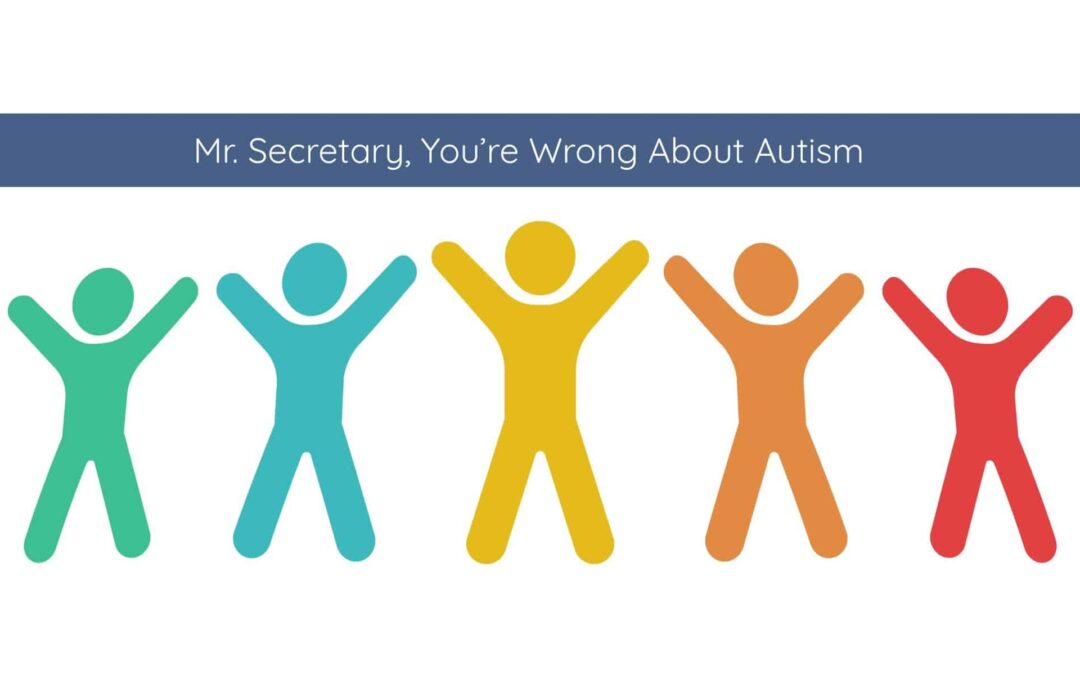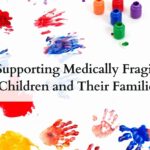Like many people of my generation, my early exposure to autism was through films like Rain Man and a Very Special Installment of the book series The Babysitter’s Club, I thought autism was a very specific cluster of symptoms – no eye contact, repetitive movements, perhaps being unable to speak, and maybe some savant-like abilities like playing songs from memory or making complicated mathematical calculations immediately. I learned very little beyond these stereotypes through my years of study for my bachelors, masters, and doctoral degrees in psychology.
Our Understanding of Autism Has Grown
 Thankfully, the study of psychology is never finished, and over the past few years I have dedicated much of my continuing education to learning more about how to identify autism, and what it is. I’m not the only one – our collective understanding of autism has grown tremendously in just the past decade, through both the work of dedicated researchers and practitioners as well as individuals in the autism community, autistics and those who love them, who have demanded their voices be heard.
Thankfully, the study of psychology is never finished, and over the past few years I have dedicated much of my continuing education to learning more about how to identify autism, and what it is. I’m not the only one – our collective understanding of autism has grown tremendously in just the past decade, through both the work of dedicated researchers and practitioners as well as individuals in the autism community, autistics and those who love them, who have demanded their voices be heard.
The Dangerous Push for a “Cure”
And yet, in the face of this growing understanding, we’re seeing a troubling step backward. Robert F. Kennedy Jr, the US Secretary of Health and Human Services, has used his vast platform to say we will find the cause of autism by September, and cure it. Kennedy has made autism research a central pillar of his role, and spread conspiratorial and anti-science claims in the process.
Additionally, the idea of creating a national autism registry — something Kennedy has suggested — is not just misguided, it’s dangerous. State-sponsored registries targeting neurodivergent people echo some of the darkest chapters in modern history, including the eugenics programs of Nazi Germany. We cannot afford to pretend that this is harmless.
Autism Doesn’t Have a Singular Cause

These proposals go hand-in-hand with a broader pattern of misinformation — including Kennedy’s repeated claim that we can “find the cause” of autism and cure it by September. But this narrative ignores decades of research and dangerously oversimplifies a complex neurodevelopmental condition.
In truth, there is no singular cause of autism. In an interview with NPR, Dr. Zachary Warren, a pediatric psychiatrist and autism researcher at Vanderbilt University, stated,
“We may have hundreds, if not thousands, of different neurogenetic factors that in combination with complicated environmental interactions influence presentations of autism.”
Autism is not caused by a single environmental exposure, a single gene mutation, and it is not caused by routine childhood vaccinations – of this, we can be certain. Repeating studies on well-established science wastes precious time and resources that could be used to improve the lives of autistic people.
Autism Is Not a Tragedy
 Autism is not a disorder in need of a cure. It’s a brain difference that presents in diverse and meaningful ways. Kennedy’s claim that autistic people will never hold jobs or have relationships is not only harmful — it’s simply untrue.
Autism is not a disorder in need of a cure. It’s a brain difference that presents in diverse and meaningful ways. Kennedy’s claim that autistic people will never hold jobs or have relationships is not only harmful — it’s simply untrue.
Dr. Temple Grandin, a professor of animal science at Colorado State University, was one of the first adults to publicly disclose she was autistic. Greta Thunberg, the young climate activist, is autistic. Bella Ramsey, star of The Last of Us, has also spoken openly about their autism diagnosis.
Autistic people are doctors, engineers, artists, writers, scientists, and teachers. Many autistic individuals engage deeply and passionately in areas of special interest, developing expert-level knowledge or skill — a hallmark of autistic strengths. They can demonstrate a strong ability to detect patterns, notice inconsistencies, and think in systems — traits highly valuable in fields like math, coding, music, engineering, and research.
Many autistic people think outside the box, unbound by convention, leading to creative problem-solving and innovation across industries.
And Yes, Some Autistic People Need More Support
At the same time, autism can present significant challenges, particularly for individuals who are nonspeaking, have co-occurring intellectual or physical disabilities, or struggle to participate fully in their communities without support.
These realities are reasons to fight for access, equity, and resources.
Communication is a human right. Autistic people deserve the tools, accommodations, and systems that allow them to express themselves, form relationships, and live with dignity — whether through speech, sign, typing, or other means.
Support must be tailored, not withheld.
Compassion must be universal, never conditional on perceived ability.
Families of autistic children deserve support too — not fear-based messaging, but real tools and resources that meet their child’s needs without implying they are broken.
Stop Spreading Misinformation — Start Listening

When one of the most powerful people in the country, and America’s official health advocate, is spreading demonstrably false claims about a difference that affects one in 31 people, it’s not just irresponsible. It’s dangerous.
We cannot afford leadership that treats a neurotype as a disease, a diagnosis as a threat, or autistic lives as disposable. Insistence on skipping down a path worn with tired misinformation doesn’t just distract — it actively diverts time, funding, and public attention away from efforts that could truly benefit the autistic community.
Imagine if those resources were redirected toward housing stability, inclusive employment models, or accessible mental health care. Toward understanding sensory overload, supporting nonspeaking individuals, or expanding access to AAC (augmentative and alternative communication).
Imagine research that focused on the needs of late- and misdiagnosed people — including women, BIPOC, and trans individuals — and that prioritized support over treatment: accommodations, tools, and therapies that help autistic people thrive as they are.
“Nothing About Us Without Us”
We need research and policy designed with, not just about, autistic people. As the Autistic Self Advocacy Network and broader disability rights movement have long stated:
“Nothing about us without us.”
This must be the guiding principle for the future of autism research — one that listens rather than speaks over, includes rather than isolates, and supports rather than seeks to change.
To the Autistic Community
Autism is not a problem to be erased — it is a neurotype, a way of experiencing and interacting with the world that is as valid as any other. The future of autism research must be one that listens rather than speaks over, includes rather than isolates, and supports rather than seeks to change. It must be driven not by fear or misinformation, but by a deep respect for neurodiversity and a commitment to real inclusion.
To the autistic community — to those advocating, educating, navigating, and simply existing in a world that often misunderstands you — we see you.
Interested in Learning More?
Contact The Catalyst Center to learn more about our services aimed at supporting neurodivergence, including Collaborative Psychological Assessment.
Call schedule a free introductory call or contact us.
About the Author
No Results Found
The page you requested could not be found. Try refining your search, or use the navigation above to locate the post.




